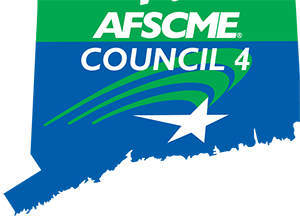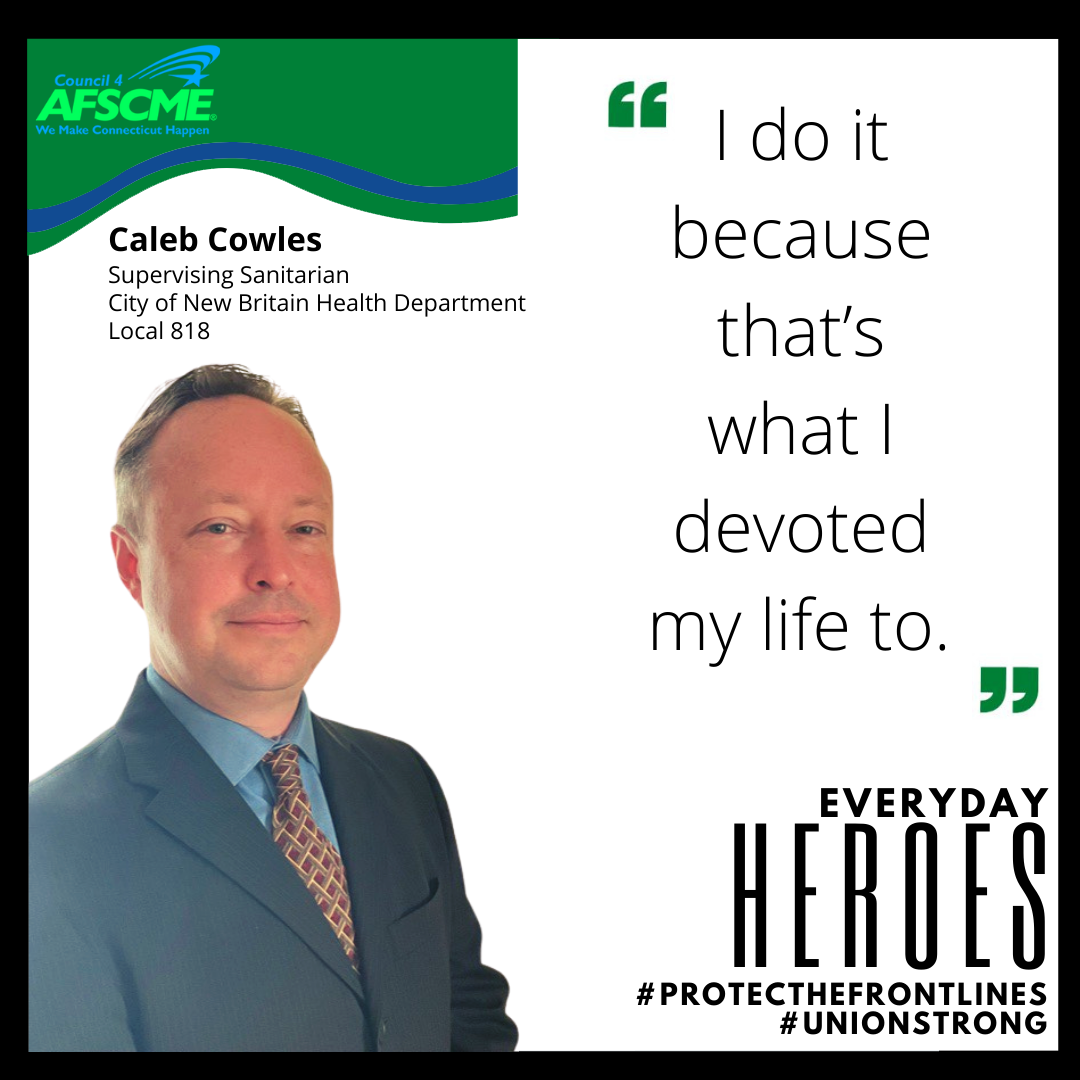Although they never wished for it, local public health workers are having their moment.
Like Olympic athletes who train their entire life for that one career-defining moment, public health workers reached that same pinnacle and level of rigor during the COVID-19 pandemic. This may be their time to shine, but it is not without its share of adjustments.
“We’ve trained for pandemic response and bio-terrorist attacks, but until it actually happens, and the specific dynamics of that particular problem arise, you don’t really know what you’re getting yourself into,” explained Caleb Cowles.
Cowles is a supervising sanitarian for the Environmental Division with the City of New Britain Health Department and member of AFSCME Local 818 (CT Municipal Supervisors). He has been working in public health for the last 14 years.
When the pandemic struck last year, his department which typically conducts food, housing, and other health-related inspections, was forced to move beyond their scope and enforce pandemic related executive orders such as mask mandates.
“As the Governor puts out new executive orders, its our job to figure out what is the best to ensure compliance at the local level, but at the same time deal with concerns of the business community and private citizens,” Cowles said. We’re literally building the airplane as we’re flying it. That’s what we we’ve done in the past year in a half.”
Cowles and his team are familiar with the challenges that come with enforcing mandates, especially among those resistant to comply. Their philosophy has always centered on education first and enforcement second, a tactic that has proven useful for handing aspects of uncertainty created by COVID-19.
“The wise way to do any public health intervention is by having that conversation on why we’re doing it, explaining why it is important, and approaching it from a place of partnership,” said Cowles. “Everybody knows that you’re the boss and can write a ticket, but you’re not going to make any long-term changes that way. The real skill is being able to talk to somebody.”
Building relationships and trust within the community is an extension of the Department’s education first approach. The racial and ethnic makeup of New Britain is diverse with the majority being Black and Brown communities along with a high density of Polish immigrants. Out of New Britain’s 15 census tracts, 10 rate high on the social vulnerability index, an indicator for public health officials that these communities need greater support before, during, and after an emergency such as a pandemic.
“In New Britain, we still have a lot of people unvaccinated,” Cowles explained. “There are those who are anxious, do not see the need for it, and [there is] a general mistrust of government from immigrants who fled communist countries in the 1980s. What we’re doing is nitty gritty public health – it’s where the rubber meets the road, and the hard part is trying to get the benefit to the people.”
With the support of funds distributed from the American Rescue Plan, the New Britain Health Department was awarded a $750,000 grant to assist vaccination outreach and canvassing efforts. They have partnered with the Human Resources Agency of New Britain, a well-established organization with a solid record of working with the underserved.
As the next phase of the pandemic unfolds with the increasing prevalence of the Delta variant, local public health departments like New Britain’s are continuously learning to adapt and thinking beyond conventional approaches when it comes to increasing the rate of immunizations.
“We want to get to where the people in the community who are not getting the vaccine are going to most,” explained Cowles. “We’re looking at barber shops, hair salons, the corner bodega. Let us put a vaccination site at so many places over the next 4 months that there will no longer be any excuse not to get it.”
When federal funding to support local initiatives eventually begins to dry up, a long-term investment strategy will be needed to bolster local public health agencies in New Britain and elsewhere that have suffered continual underfunding for decades.
Despite the myriad of challenges Cowles faces to better an entire community, he never loses sight of his purpose and calling.
“Seeing the people in this town who work really hard paycheck to paycheck and try to make their way is what gets me up in the morning,” he said. “As someone who works for the taxpayer - - to do better, walk faster, to show up earlier, stay later -- I don’t get compensated for that, but I do it because that’s what I devoted my life to. That’s the important thing.”

